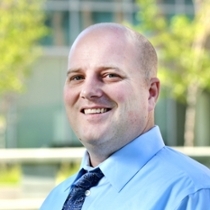Assistant Professor of Toxicology, University of Colorado; Former Postdoc, Department of Medicine; 2010-2014

Interview By Joshua Chandler, PhD
Postdoctoral Fellow, Dept. of Medicine
As soon as training begins, most postdocs develop an acute sense that time is of the essence. Our positions can be short-lived, funding is key and gone is the (relative) safety of graduate training with several guaranteed years to develop projects. Ideally, a postdoc hits the ground running with one or more great ideas so no time is wasted, especially for those seeking highly competitive academic positions. The creativity, collaboration
To learn about postdoctoral success in academia, I interviewed Dr. James R. Roede, a former Emory postdoc. Dr. Roede successfully transitioned to a prestigious professorship at the University of Colorado in the summer of 2014. While at Emory, he trained under Dr. Dean P. Jones in the School of Medicine’s Pulmonary, Allergy
What led you to an academic career?
At
What do you enjoy about being a professor?
As a
How did your postdoc training at Emory make you competitive for an academic position?
The main thing I did was to focus on my own success from Day One. No one is going to tell you what to do, and you can’t waste time waiting for someone to give you your project. Timing is crucial, for
What about publications?
Lots of postdocs make the mistake of aiming for one or two papers in very high impact journals and don’t make much headway. In my
What resources for postdocs did you use at Emory and how did you benefit from them?
I got a lot of help with grant writing for both my F and K grants from Janet Gross and Mary DeLong in the Office of Postdoctoral Education. I am really grateful for all of the help they provided. The ethics courses and CV workshops were also helpful, and in the last postdoctoral year of my
How did you know it was time to move on to your current position?
After 3 years as a
What advice do you have for postdocs to make
You are your own greatest advocate. No one else will be there for you 100% of the time
This interview was published

